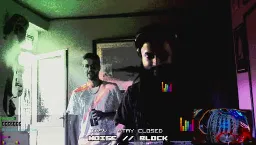Hiromi: Tiny Desk Concert
Eilis @ Eilis @sh.itjust.works Posts 96Comments 19Joined 7 mo. ago
Eilis @ Eilis @sh.itjust.works
Posts
96
Comments
19
Joined
7 mo. ago
Polonius - What Lurks Under the Sweat of the Swelling Shrub's Brow

10/10